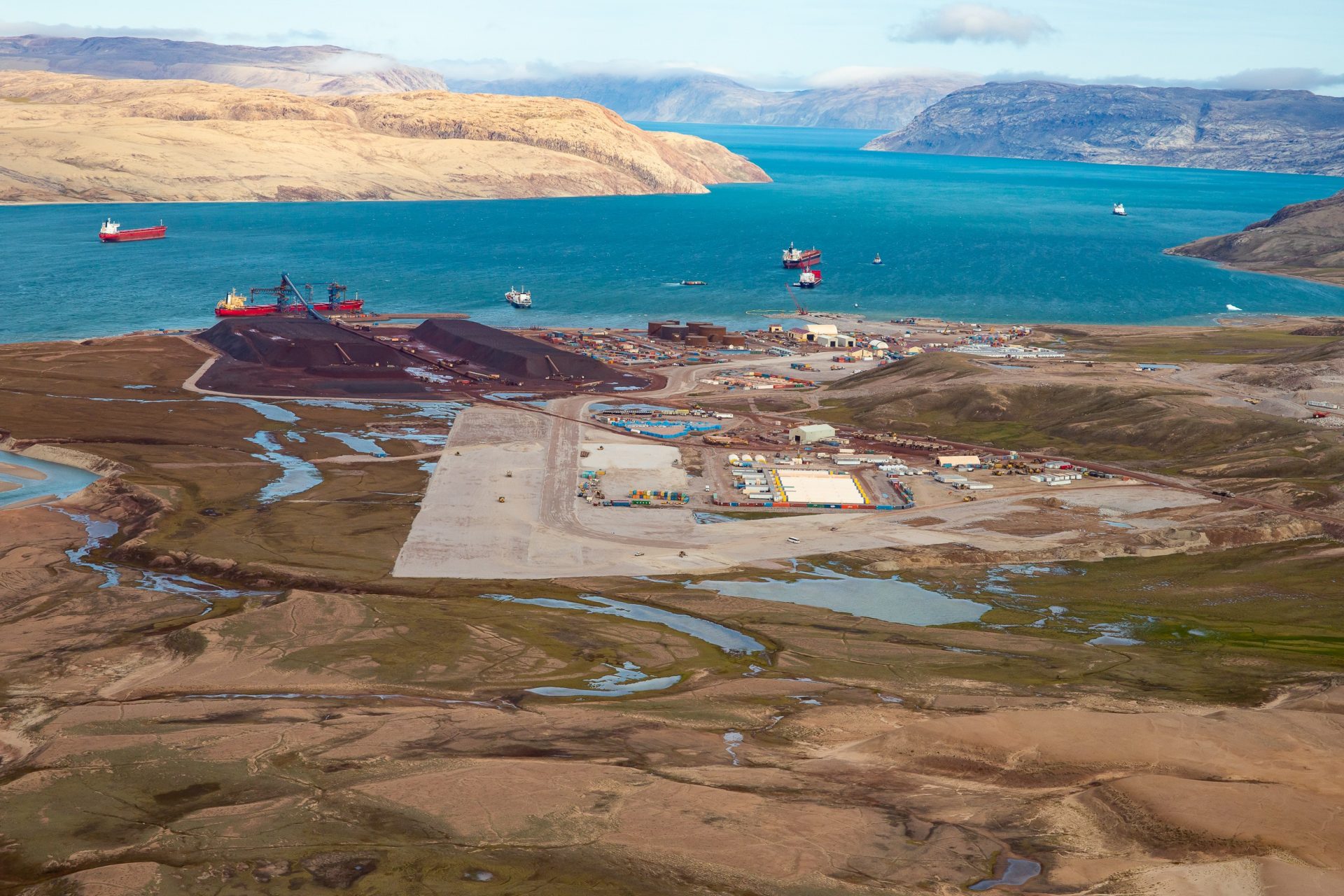
In response to a mining development in Nunavut, Inuit hunters fought back by blockading the Baffinland airstrip and mine access road. This was in response to the company attempting to steamroll the project forward in spite of widespread concerns over the expansion. In an amazing sign of solidarity, a group of employees stranded by this blockade penned a letter expressing solidarity with the Inuit protestors. This points the way forward for the movement.
The mine owned by Baffinland Iron Mines Corporation wants to double its mine output from six to 12 million tonnes of iron ore. The plan to make this happen is in two parts. First, the corporation looks to construct a 110 km railway from the Mary River Mine to the Milne Inlet Port. And, second, an increase in shipping—up to 176 ship transits per year— from the Milne Inlet port by the construction of an additional dock.
Before the blockade there were many questions and concerns which were inadequately addressed at public meetings on the matter. In previous meetings on the subject of the expansion, North Baffin community representatives were concerned over outstanding questions unanswered and a lack of clear information on the effects and aims of the expansion. The most pressing concern for the communities was the impact on wildlife in the area surrounding the proposed developments, such as caribou and narwhal. Any negative effects on the land and waters would result in Inuit communities suffering as many in the north rely on hunted game for sustenance.
In spite of these concerns not being properly addressed, the company has pushed to get the project approved in time for the start of the 2021 Arctic sealift season. Left with little choice, local hunters, known as the Nuluujaaq Land Guardians, blockaded Baffinland’s airstrip and mine access road from Feb. 4–11. The hunters only allowed essential emergency transportation to pass through. The blockade sparked solidarity protests in Pond Inlet, Igloolik and Arctic Bay. These solidarity actions prove that the Guardians are not alone in their issues with the mine, as many representatives and members of hunter and trapper organizations have also voiced their opposition. These groups have cited that Baffinland does not have enough data to measure environmental impacts and the economic benefits of the development remain vague for the affected communities. What little information the Inuit of the area were given was not translated, something that limited the communities from ability to ask important questions and voice concerns.
At this time, following the protests and the end of the blockade, the Qikiqtani Inuit Association has withdrawn its support for the expansion. This reversal from previous support of the project signals the pressure that community resistance can exert over governing Inuit organizations. With a new public hearing on the matter slated to start April 12 and run until April 21 it seems like the struggle is far from over.
Capitalists give nothing that isn’t fought for and autonomy and consent will never be respected without a struggle. Take Baffinland at their word when they say: “Consultation is not meant to mean agreement.”
In the midst of this struggle an anonymous group of Baffinland miners issued a letter of solidarity. Their anonymity was because of the threat of their employers terminating employment for any who would dare to speak up publicly against the company. Within this letter are statements of support for the blockade and the more general Inuit struggle against environmentally destructive industrial expansion. Some choice quotes from the letter are as follows:
This country has seen the consequences of entitlement and greed that have led to the destruction of the land for profit, and we are glad you are fighting for autonomy over your land.(…)
You’ve said that it is not the workers you are upset with, but the Baffinland executives, and we would like to say that our support is also not with our superiors in the company, but with you.
We firmly believe that the company should listen to your demands and give you what you want, though even that will likely not be enough. With the horrible history that has taken place in this country, and the ways in which your voices were silenced in the process, what could be enough? [emphasis added]
These sentiments reveal a strong current of solidarity with the Indigenous struggle that needs to be fostered by the labour movement as a whole. The indigenous struggle is innately an anti-capitalist one. Every instance of struggle we have witnessed in the past few years have been indigenous actions against a private corporation encroaching on their land. These are the very same capitalists which the wider working class is also in struggle with.
The labour movement has every interest in supporting the Indigenous struggle to force companies to bend to the demands of Indigenous autonomy and consent. Development projects cannot carry on without the consent of the working class. Any labour action in opposition to corporate developments would only strengthen the struggle against the continued exploitation and oppression of Indigenous peoples. Defeating corporate encroachment on Indigenous land would only weaken the rightwing and the capitalists, thus strengthening the working class struggle in general. In order to make this a reality, the labour movement must openly and firmly link up with the struggle waged by Indigenous people.
For solidarity in the struggle against capitalist exploitation!
Victory to Land Guardians! From Wet’suwet’en to Land Back Lane to Nuluujaaq the struggle for a better world continues!

